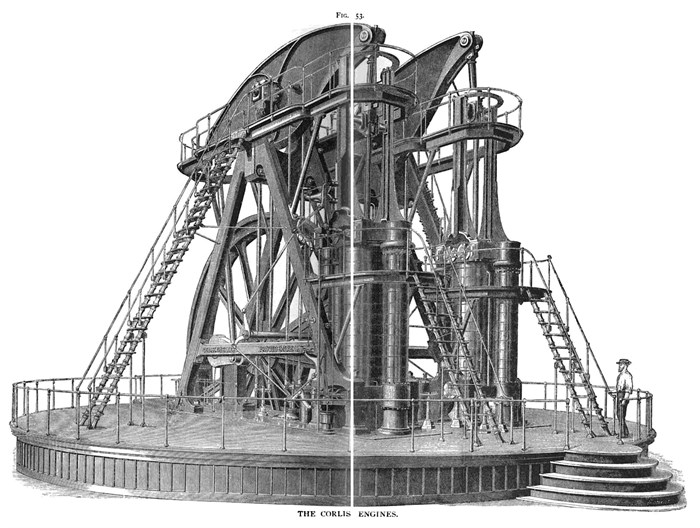Douglas and Grant Engineering
Douglas and Grant Engineering,
Dunnikier Foundry, Cupar, Fife was founded by Robert Douglas b 1822, a son
of Rev
Robert Douglas, Kilbarchan, Renfrewshire.
The origin of the firm can be traced to the Stratheden Foundry, Cupar,
in which Robert Douglas bought shares in the early 1830s. By the 1850s
some general foundry work was being carried out in Kirkcaldy and by the
1870s, the partnership of Douglas and (Lewis) Grant was specialising in
the manufacture of steam engines. In the early twentieth century the firm
diversified into the production of rice-milling machinery for export and
in 1912 established branches in Rangoon, Saigon and Tanjore to develop
this market. Douglas & Grant was incorporated as a limited company in the
same year.
In 1926 the original firm went into voluntary liquidation and was
re-organised as Lewis C Grant. This company was incorporated in 1951.
Charles Edward Douglas b.1871, d. 1952 Kirkcaldy,
was an engineer at his father's engineering company and travelled all
over Asia selling the company's most well known device, the steam
driven rice mill. One of these rice mills is still at work in the
Irawaddy Delta in Burma. Copies of his diaries made during these
journeys at the turn of the last century, are available from the
Dundee University Archives.
The company provided equipment that enable southern Australia's first
ship repair facilities to be built.
This new ‘Dunnikier’ slip was shipped from Scotland to Port Adelaide in
two lots during 1862. The installation of the slip began that same year.
It was built on the western side of Fletcher’s Slip. The new slip was
very large and designed to take 2000 tons.
The company was also registered as a manufacturer of paper-making
equipment. Messrs Douglas and Grant of Kirkcaldy designed the The
Corliss engine working 1:6 scale model, made in the Edinburgh Museum of
Science and Art workshop in 1876, and which is now on display in Edinburgh
The Corliss Centennial Engine powered more than 800 exhibitions at the
Philadelphia Centennial Exposition of 1876, the same year the working
model was built. It was 14 metres tall!

A power generation boiler was purchased by the Brazilian company
"Indústrias Reunidas Fábricas Matarazzo SA"; Engine Number:
696; Year: 1915. This power generation boiler was the first
source of energy of the city of Antonina, state of Paraná, in
southern Brazil.
The following documents are held in the University of Dundee
archives (amongst others): There is a contract of copartnery between Messrs Robert
Douglas and Lewis Grant under the name of Douglas and Grant,
engineers and ironfounders. Dunnikier Foundry Works, Kirkcaldy
Jackson & Douglas [John Jackson and Robert Douglas], Cupar MillsJackson &
Douglas [John Jackson and Robert Douglas], Cupar MillsDissolution of
partnership and assignation of lease, Jackson & Douglas, 1851Agreement
between Robert Douglas, engineer, Kirkcaldy, and William Inglis, engineer,
Edinburgh, regarding manufacture and sale of Corliss Steam Engines and
patent circulating boilers, 1864Robert Douglas in petition for
exoneration and discharge as trustee on sequestered estates of Messrs Key
& Sons and George Andrew Key and Alexander Key. Edinburgh. December 1880
Memorandum by Robert Douglas, engineer, Kirkcaldy, with reference to
proposed amalgamation of the firms John Key & Sons, shipbuilders and
engineers, Whytebank and Kinghorn, and Douglas & Grant, engineers,
Dunnikier Foundry, Kirkcaldy. 1884Agreement, with subsequent
alterations, between Messrs Douglas & Grant, Dunnikier Foundry, Kirkcaldy,
and Mark Wadia, Manchester and Bombay, appointing him agent throughout the
district of Bombay 1886Draft heads of agreement for copartnership in
the firm of Douglas & Grant, the partners being Lewis Grant, engineer,
Kirkcaldy, David Bonar, engineer, London, and David Landale, engineer,
Leith 1893Memorandum in relation to proposal to form a company to take
over from Douglas & Grant Ltd the business of their eastern agencies March
1915
The Patent Floorcloth Co. Ltd
Incorporated in 1873 and
operated by John Whyte, former manager at Nairn’s; Robert Douglas of the
Kirkcaldy engineering firm, Douglas and Grant and a group of Ayrshire ship
owners .The works near the railway station were severely damaged by fire
in January 1880 and the company was forced into liquidation. See also:
Biographical entry for Robert Douglas |
|


